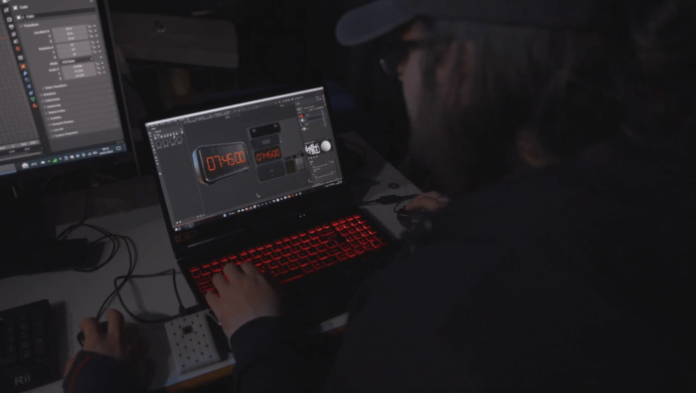
Working alongside Buckinghamshire New University (BNU) faculty, Final Pixel and Absen provided students studying Visual Effects and Games Art courses the opportunity to further develop skills and refine their knowledge of this emerging industry with a live brief, that culminated in facilitating support and expertise across a four-month project which culminated into a two-week virtual production (VP) shoot.
With the use of Absen’s PL2.5 LED screen, Jonathan Dyson, Virtual Production Director for Absen demonstrated the product’s capacity for virtual production. Regularly providing a range of LED applications for universities and colleges, Absen became involved with the Final Pixel on the project to assist in providing a better understanding of VP and ICVFX on LED walls and for those wanting to develop a career within the industry and helping them get ahead of the game.
“It gave us the opportunity to demonstrate this fairly new technology, highlighting the flexibility, ease of installation and cost effectiveness of the Absen PL Series. Absen virtual production LED screens have the range to create a large 25m to 30m curved volume, as well as a much smaller, twenty panel screen to film more basic shots – still with exceptional quality and performance, which the students observed throughout the training,” commented Dyson.
Formally known as the ‘School of Science and Art’, Buckinghamshire New University and its students fully benefited from the expertise and guidance from Final Pixel by learning techniques and skills from industry experts who were on hand every step of the way to train and guide them. “This was the first virtual production (VP) shoot these students had worked on. This project provided the opportunity to learn all about these new technologies, including the Absen LED video wall, camera tracking and Unreal Engine,” explained Dr Jodi Nelson-Tabor, Business Development & Training Manager for Final Pixel Academy.
Prior to this VP shoot, Final Pixel delivered a train the trainer program for BNU staff and faculty to help upskill and share industry knowledge and insights which they would be able to build into their curriculum and provide students with a framework in which to build their VP projects. Final Pixel provided a live industry brief and facilitated specialist support alongside the faculty, staff, and students during the four-months of preparation throughout completion of the VP Shoot. This gave the both students and faculty the opportunity for it all to come together by delivering everything from the student’s pre-written scripts, 2D animatics and Unreal environments for the LED Wall and using camera tracking to shoot material from their original scripts – resulting in some fantastic examples of implementation of VP workflows and video production.
“There are lots of opportunities for collaboration and innovation between industry and education and Universities are the seat for that. Working together helps us all aim to fill these acute skills gaps within the creative industry,” concluded Nelson-Tabor.





